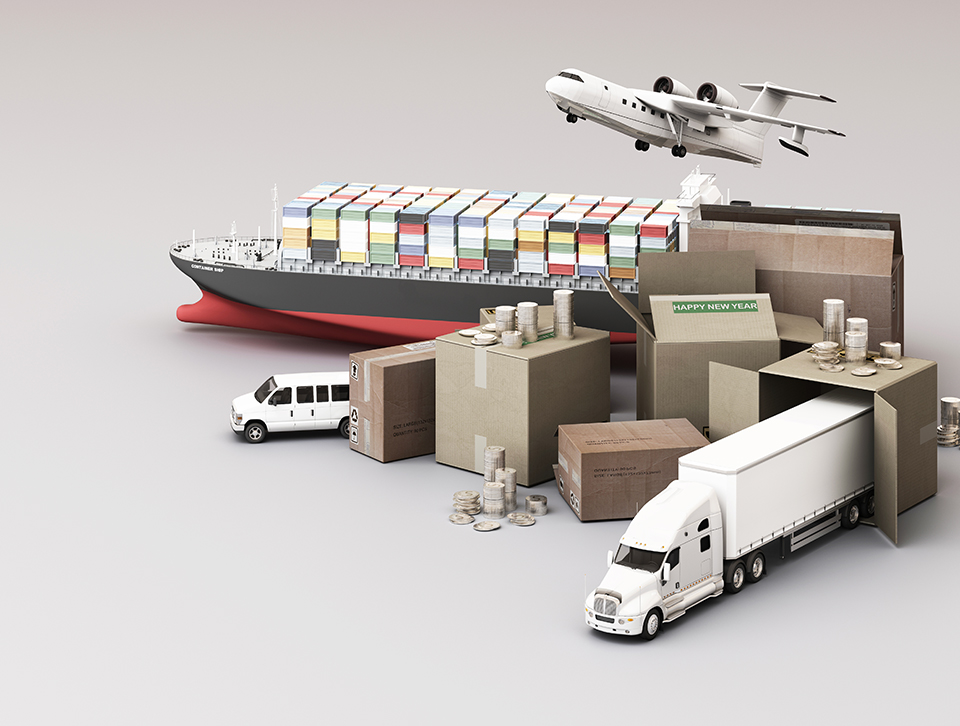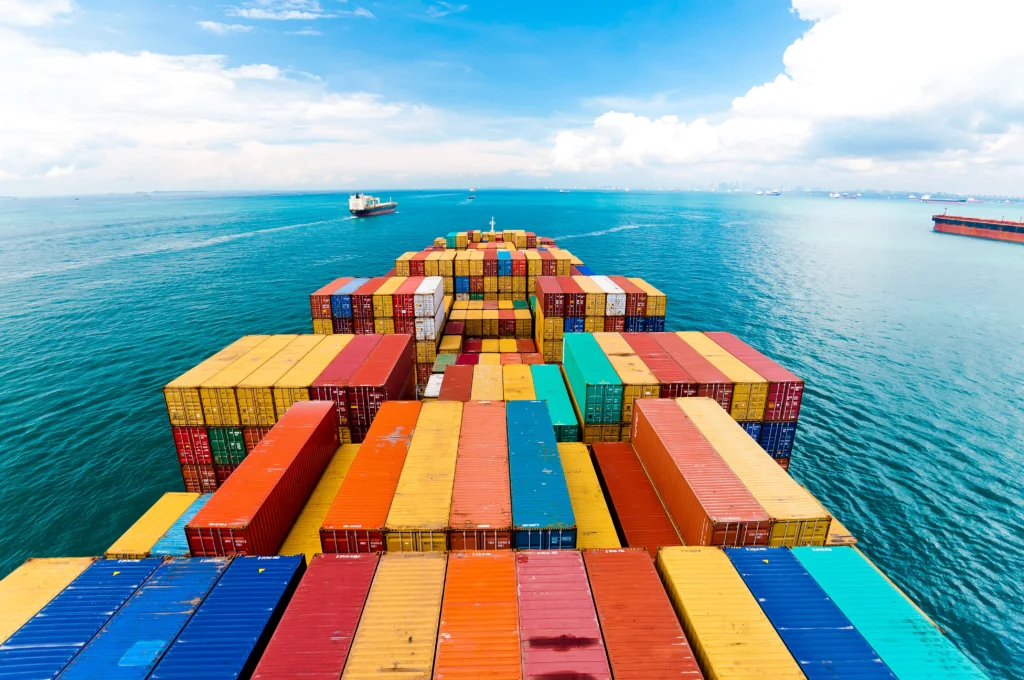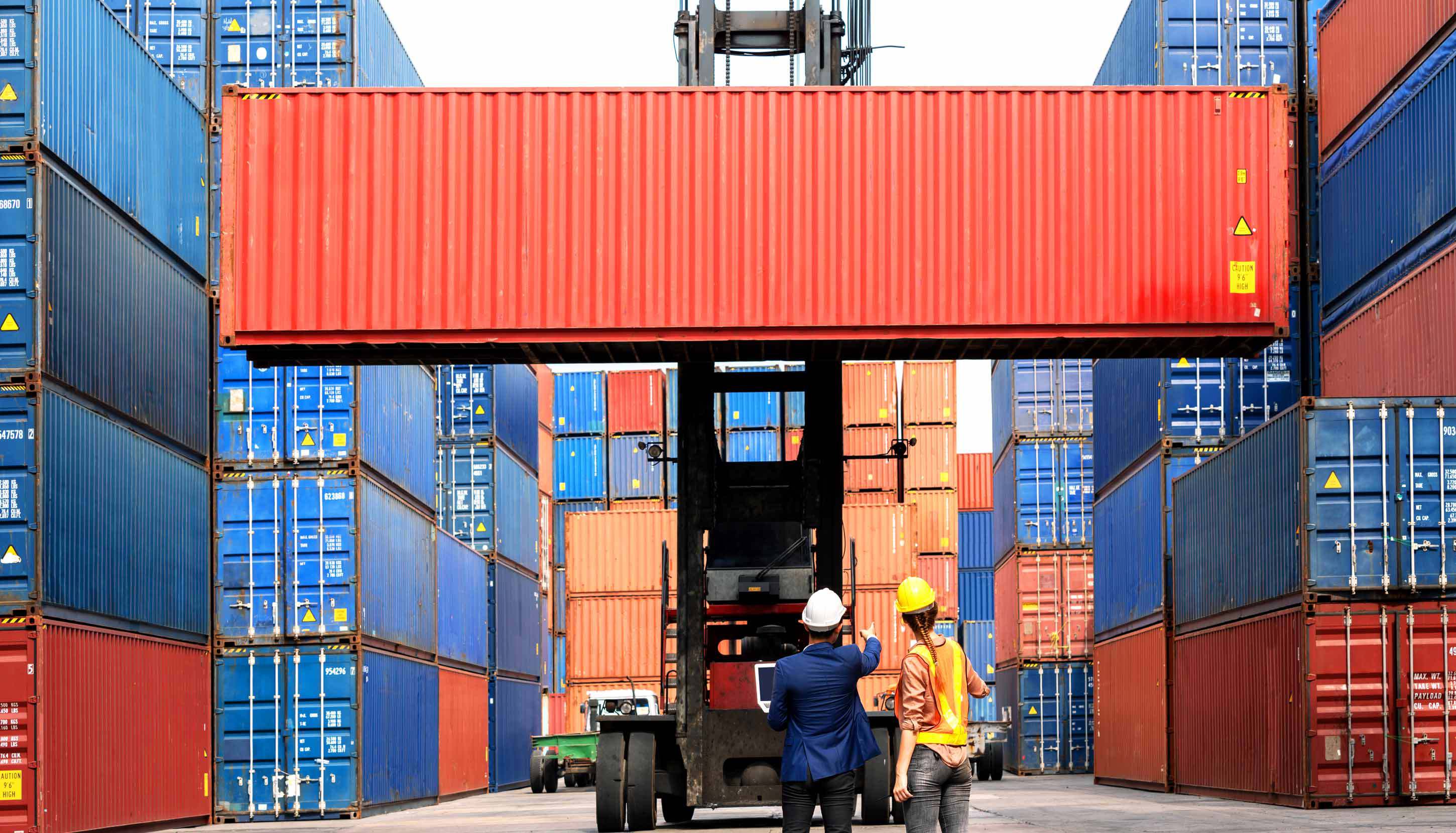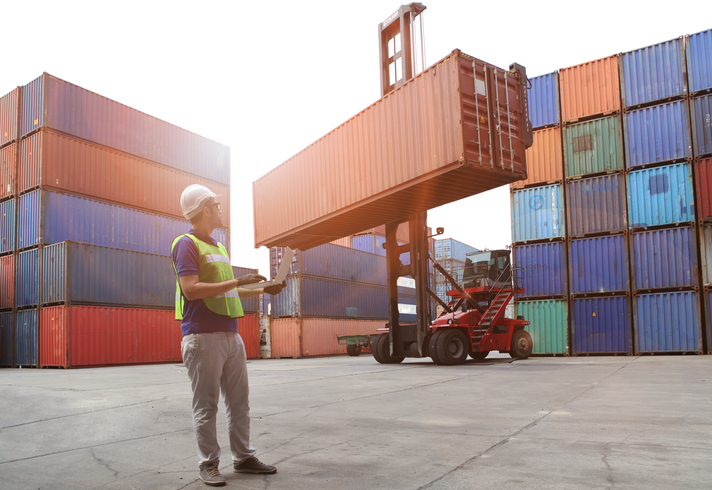
Cargo Insurance
Carga insurance in the United States is a critical component for USA businesses and people in shipping goods domestically or internationally. This class of insurance provides financial protection to the insured against risks that may include damage, theft, or loss of cargo during transit. A detailed outline of Cargo Insurance in the U.S will follow, including types and coverage options, the importance of the insurance to logistics, and many others.
What is Cargo Insurance?
Insurance of cargo ensures the value against loss arising during transport either by sea, air, rail, or road. This means that in the event of goods being lost, damaged, or stolen while in transit, there is the possibility of recovery by the owner or International shipper of the financial value to avoid USA economic loss.
Types of Cargo Insurance:
1. Land Cargo Insurance: This class of insurance applies to commodities transported within the U.S. by either trucks or rail. It offers protection against accident and robbery and gives coverage against robbery or damage in transit by road or rail.
2. International Marine Cargo Insurance: Although the name would suggest sea transport, the insurance covers goods exported and imported internationally by either sea or air. Actually, it may refer to inland transportation.
3. All-Risk Coverage: This kind of cargo insurance is the most comprehensive because it covers all risks, excluding those that have been excluded by the policy, like improper packaging.
4. Open Coverage: Under this kind of open cargo insurance USA policy, all shipments dispatched by the insured continuously are covered, and the need for buying separate insurance on each shipment does not arise.
5.Single Coverage: This International policy is bought on a per-shipment basis and is convenient for the once in a while shipper or an infrequent one.
What is covered under Cargo Insurance?
Generally, USA cargo insurance is accessible for a broad range of risks:
• damage due to accidents-usually collision
• elements of Nature-usually storms, earthquakes
• stealing or hijacking
• International Carrier's improper handling or storage
• General average (common loss in ocean transport)
Importance of Cargo Insurance:
• Risk Management: Global supply chains are subject to a variety of risks, from natural disasters to piracy. Cargo insurance is necessary to minimize financial loss.
• Contractual Requirement: In many cases, cargo insurance is compelled by law or compelled by contract in various international shipping agreements.
• Protection Against Carrier Liability USA Limits: Most of the shipping carriers have limited liability for goods lost or damaged, which is normally much lower than the actual shipment value. Cargo insurance covers the full value accordingly.
• Business Continuity: For any USA business, cargo International insurance makes sure that sudden loss does not substantially affect the operations or revenue generation. Some providers of cargo insurance in the United States include
There are scores of cargo insurers in the United States, specialists, and larger insurance companies that provide this service, such as:
• Liberty Mutual: It underwrites both International cargo and marine insurance.
• Travelers Insurance: Travelers provide bespoke policy underwriting for specific types of cargo.
• Chubb: Highly respected for marine and inland transit policies
• Allianz Global: USA global coverage with specialized policies for different industries.
Factors that Influence Cargo Insurance Costs
• Goods moved-type-high-value items usually draw higher premiums.
• Mode of transportation-air, sea, road, or rail
• Distance and destination-longer/riskier routes may increase premiums
• Value of the cargo
• Previous claims history
Cargo insurance is of equal importance to the shipper, importer, or exporter in the United States when it comes to protecting one's financial interest during goods-in-transit situations. It ensures that in an event of an unforeseen loss or damage, a business will recover their investment and carry on their operations without any significant USA financial disruption. Whether shipping within the country or around the globe, cargo insurance provides peace of mind in the unpredictable world of logistics.
Following are the major benefits of cargo insurance in the U.S. that offer critical protection and peace of mind to businesses and individuals International shipping goods.
The following are the key advantages cargo insurance offers to shippers of goods in the United States:
1. All Risk Protection Cargo insurance
protects your cargo from a wide array of risks, such as theft, damage, loss, and natural disasters. Events generally included under insurance are: • Accidents- those years which involve collisions or derailments • Natural disasters-storms, floods, earthquakes
• Theft, hijacking, or vandalism
• Mishandling during handling
In the absence of cargo insurance, however, such eventualities directly have to be borne by the International shipper. In other words, they bear the whole USA financial loss.

2. Reduction of Loss
While shipping valuable goods, there is always a prospect of part or whole loss. With cargo insurance, International companies will be guarded against major loss that may be incurred due to damage or loss of the cargo. The cover will guarantee that the total or partial value of the cargo is recovered by the insured, as adjusted by the policy.
3. Protection Against Limited Carrier Liability
Most of the carriers within the U.S. have limited liability for goods damaged or lost during shipment. Federal laws or international conventions generally cap the amount a carrier should pay in compensation, which could be much lower than the actual cargo value. Cargo insurance protects your goods for their full value beyond the minimum carrier liability .
4. Variations in Coverage Options
This is specific to the type of goods being shipped, the method of transportation, and any business needs. You can choose between:
• All-Risk Coverage: This covers all types of losses except those that have been excluded.
• Named Perils Coverage: This International policy covers specific risks.
• Open USA Coverage: For frequent shippers, it is a continuous policy. Your International business can pick a USA policy based on its best option to fit the risk exposure and shipment frequency.
5. International Business Continuity
To companies dependent on the timely shipment and delivery, USA cargo loss disrupts supply chains, production, and operations. Cargo insurance covers the cost of replacement goods to minimize downtime and maintain cash flow in order to ensure USA business continuity. 
6. Peace of Mind for International Shipments
International shipment of goods carries a greater risk of complications that may arise from political instability, piracy, or poor handling while on different ports. Insurance of cargo would give confidence in cases of cross-border USA shipments where the goods are covered right from the time they leave the warehouse to the time of International delivery.
7. Facilitates Compliance with Contracts
Most international and domestic shipping contracts demand proof of insurance. Cargo insurance will facilitate it for shippers to respond to such requirements in a contract and hence proceed with a transaction or alliance without inconvenience. It adds to the professional standing of an enterprise as a capable and attentive-to-risk partner, too.
8. General Average Protection (Marine Insurance)
General average is a principle of maritime law that provides when goods are transported by sea, all parties to a shipping voyage share the loss when the shipowner voluntarily sacrifices some property-for example jettisoning cargo-to save the vessel. As discussed above marine cargo USA insurance would protect the shipper from an unpredicted International financial burden.
Whether shipping specialized, high-value, or fragile cargo that includes electronics, pharmaceuticals, or even luxury goods, cargo insurance can be tailored for particular risks to ensure these are well taken care of during shipment.
10. Global Coverage Most U.S. cargo insurance policies provide worldwide cover. This is especially critical to any business involved in worldwide trade, ensuring protection for goods whatever the destination and however International complex the supply chain may be.
11. Reduced Out-of-Pocket Expenses
Whenever there is a loss involving goods or even when they are damaged, cargo insurance tends to save a USA business from having to spend out of pocket to repair or replace these items. The cost of replacement falls on the insurance company, who pays the total so a business will not have to take such a severe financial blow, which could potentially bring business operations to a close.

12. Improves International USA Financial Planning
Insurance against cargo is a International predictable expense that may allow a corporate forecasting of logistics and financial strategies. On account of knowing that potential losses are covered, it helps companies allocate resources elsewhere rather than have the uncertainty of unplanned costs.
Key benefits associated with cargo insurance are protection from risk/financial loss to business continuity, which enhances the efficiency of a International company in managing its supply chain. In addition, it offers a customized policy and global coverage, making it a very critical tool in securing cargo for both domestic and international USA shippers.
While there are a lot of benefits associated with cargo insurance in the United States, there are also some potential disadvantages to the scheme.
Listed below are the main drawbacks associated with cargo insurance in the United States:
1. Cost of Premiums
One of the major disadvantages is that insurance creates an added expense. Premiums fluctuate, depending on factors such as but not limited to the value of goods, mode of transport, destination, and nature of the shipment. In business, where high-value or fragile goods are shipped, the International premium amount can be quite high, cutting into the profit margin. For International small businesses or individuals, these premiums may be a nuisance, more so for International shipments of low value.
2. Exclusions and Limitations
A cargo insurance policy may be excluded or limited by class regarding which a shipper is at risk for certain perils. For example,
• Poor Package: The insurers always tend to dismiss any claim for poor packaging of cargo when it is apparent, yet it has happened during shipment.
• War, Terrorism: Almost all USA policies have their exclusions on coverage due to political disturbance, war, and terrorism.
•Wear and tear: The damage caused by the natural degrading of goods may not be compensated for. Shippers should therefore study the International policy details to understand what is insured and what is not.
3. Complicated Procedure for Claiming
Claiming a cargo insurance generally involves a long and cumbersome process. In many instances, the insurance companies may ask for more detailed documentation such as:
• Proof of value of cargo
•⠀Bill of lading along with other USA shipping International documents
•⠀Inspection reports of damaged goods
• Evidence that appropriate precautions were taken The additional administration involved in handling this can be extremely time-consuming while waiting for reimbursement. Moreover, where cash flow is an issue for a International company, this inevitably causes more stress, primarily.
4. Deductibles
Many cargo insurance USA policies contain large deductibles that a shipper is supposed to pay first before the cover kicks in. For smaller claims, when the deductibles are high, it may not be worth the time of the claimant to pursue such a claim, thereby the effect will be felt that the business needs to carry minor damages or losses out of pocket. This may lower the perceived value of the insurance in certain cases.
5. International Limited Coverage in Certain Situations
It is not that the policy of cargo insurance always covers all the stages of transit, nor does it cover all modes of transport. For instance,
• Inland transit: International Policies may not cover goods in road or rail transit but only while at sea or during air transit.
• Warehouse storage: The insurance International policy may fail to cover goods stored in a warehouse before or after transit, thereby creating a protection gap. Shipper must scrutinize their policies since it may not include full coverage for USA shipping process
6. Dependence on Carrier's Claims
More often, though, the cargo insurance claim process depends upon the carrier's initial assessment. Disputations on the cause of damage or loss made by the carrier add to complexity at the insurance end in the claim process, possibly delaying or leading to denials.
7. Limited Coverage to High-Risk Destinations
Cargo insurance that covers shipments sent to high-risk destinations that are susceptible to political turmoil, piracy, or high levels of crime can be very expensive. In such situations, insurance companies may refuse to cover the shipments outright, narrowing the scope of protection that a business enjoys in international trade.
8. Overlapping Coverage
Where the cargo carrier already provides limited liability coverage, purchasing extra cargo insurance would seem superfluous. Overinsurance can also occur where businessmen get policies in which coverage coincides with other policies already in place, such as carrier liability and other packages related to business insurance.

9. Administrative Load
Again, there is the insurance International policy management and tracking that some businesses have to cope with. Many shipments mean separate documentations and claims, premiums, and coverages to monitor, aside from being an administrative encumbrance to logistics teams.
10. Fluctuating International USA Premium Rates
Cargo insurance premiums from time to time undergo variations due to a number of factors that may include:
• Changes in global political or economic conditions
Insurance market changes or supply disruption: This can make it somewhat hard to predict and budget their shipping cost for the enterprises.
The insurance policy on cargo in the United States defines the terms and conditions upon which an insurance provider accepts to protect the insured, either a shipper or cargo owner, from financial loss due to damage, loss, or theft of goods in transit. The common elements and provisions of a U.S. cargo insurance International USA policy are discussed below, commencing with:
1. Types of Coverage
U.S. cargo insurance International policies are generally provided in varying forms, including the following:
• All-Risk Coverage: The most comprehensive policy available, which would cover any damage or loss that may occur except for those explicitly excluded by the contract, such as acts of war or improper packaging.
• Named Perils Coverage: This includes only risks specifically named within the policy, such as fire, theft, or even the sinking of the ship carrying goods.
• Open International Cargo USA Policy: One policy covers continuous insurance for all shipments over a certain period, usually one year, involving various shipments.
• Single Shipment Policy: A one-time, one-shipment-only coverage.
2. Covered Perils
The cargo insurance policies of the U.S. cover, in general, the following perils or risks:
• Theft or pilferage
• International Physical damage due to collision, overturn, or derailment
• USA Natural disaster like storm, flood, or earthquake
• Fire or explosion
General average losses in maritime USA shipping, occurring when cargo must be sacrificed to save the vessel Policies typically exclude a number of risks such as Acts of war or terrorism Nuclear risks Willful misconduct by the insured or carrier Improper International packaging or handling by shipper Natural wear and tear of goods
3. Valuation Clauses
The cargo insurance USA policy covers cargo for a specific value, which is a valuation of the cargo. This is based on:
• Invoice Value: The declared value of the goods as stated in the International shipping invoice.
• CIF Value: The cost of the goods, plus insurance, plus freight. In addition, this includes the shipment cost and USA insurance to the destination.
Posted on 2024/10/07 05:50 PM
